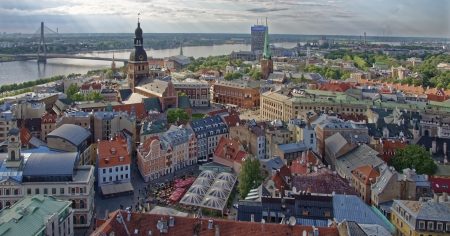 Latvian gambling revenue rose significantly quarter-on-quarter in the three months to 30 September, though remained far below 2019 levels, according to new Lotteries and Gambling Supervisory Authority figures.
Latvian gambling revenue rose significantly quarter-on-quarter in the three months to 30 September, though remained far below 2019 levels, according to new Lotteries and Gambling Supervisory Authority figures.
Revenue jumped from €12.3m (£11.1m/$14.3m) in the second quarter – a period where all forms of gambling were suspended from 6 April until 9 June – to €55.2m in Q3. However, this represented a 33.2% year-on-year decline.
Looking at the period’s performance in terms of product, land-based slots accounted for the bulk of Q3 revenue, at €35.0m, or 41.2% below Q3 2019. Table games accounted for a further €1.5m, with bingo halls bringing in just €41,000, and betting shops €573,000.
Interactive gambling, on the other hand, brought in €15.5m, with the remaining €2.5m coming from other, unspecified, sources.
This means that for the first nine months of 2020, total revenue stands at €129.2m, a 45.5% year-on-year decline.
This comprised €80.7m from land-based slots, and €4.7m from table games. Bingo hall revenue stands at just €97,000 for the year and the contribution from betting shops is down 46.4% at €1.3m.
Online gaming revenue, meanwhile, is down 6.2% year-on-year at €36.4m. This is made up primarily of online slot revenue of €27.5m, followed by €8.4m from sports betting.
The only product to report year-on-year growth is online card games (i.e., poker), for which revenue was up 54.0% to €466,493. A further €6.1m in revenue came from other sources, the Lotteries and Gambling Supervisory Authority noted.












